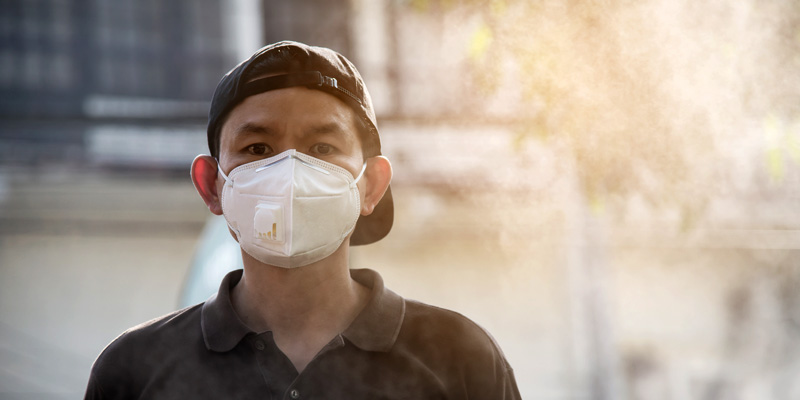The levels of air pollution has always remained high in certain cities of South Asia. But in few months that went by, many cities witnessed unusually clear skies and fresh air due to various countries announcing complete lockdown to contain the coronavirus. The complete shutdown of industrial activity, coupled with no traffic and negligible human activity on roads have led to significantly lower levels of nitrogen dioxide and sulfur dioxide both harmful chemicals which are released by power plants and motor vehicles. Metropolises across South Asia with historically higher particulate matter concentration levels, also saw a substantial reduction in pollution.
While lockdowns did provide temporary side benefit and blue skies with cleaner air, previous exposure to pollution has made South Asians predisposed to contracting serious respiratory ailments, including complications arising due to COVID-19. As of July 20, COVID-19 cases in South Asia is rising exponentially with more than 159,0579 confirmed cases so far mostly in India, Pakistan and Bangladesh.
Research scientists and doctors place vulnerabilities pertaining to lungs and respiratory ailments like asthma and chronic lung disease high on the list of preexisting conditions that can make people more prone to COVID-19 infection. Data suggests that from among the initial group of hospitalized patients, sepsis, pneumonia, respiratory failure were reported as the most common complications.
Scientists around the world suggest that air pollution has remarkably worsened the impact of COVID-19 and may have led to higher mortality rates than if pollution level was lower. Researchers postulate that harmful pollutants and air-particles found in polluted environments may expose people to the virus. Another theory forwarded by the scientific community claims that micro pollutants floating in air can act as vehicle for viral transmission.
Various studies conducted across various nations have led the global scientific fraternity to reach to the consensus that improving air quality can play an important role in overcoming the pandemic. Although at an initial stage, research imply that pollution must be limited as much as possible to minimize the impact of a second or a third wave of the coronavirus.
Findings from studies also offer an opportunity not only to implement existing air pollution regulations to safeguard human health (both during and after COVID-19) but to also ensure that we come out of this crises with the prospect of less air pollution.
Nations could promote the use of cleaner fuels and adopt more eco-friendly transportation and energy technologies. For instance, some European cities that have emerged out from the lockdown have switched to cleaner transport to sustain cleaner air.

